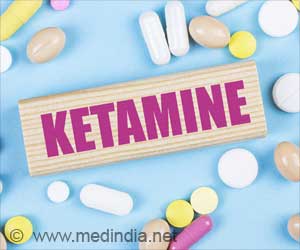Depression and other neuropsychiatric disorders can be therapeutically treated using caffeine, reveals a nre study.

‘Motivational symptoms of depression, cognitive and emotional impairments in attention-deficit/ hyperactivity disorder (ADHD) and spinal cord injury can be treated with caffeine in combination with certain A2AR or A1R antagonists.’





Preclinical evidence is reviewed which indicates that caffeine and selective A2AR antagonists could be used to treat the motivational symptoms of depression as well as cognitive and emotional impairments in attention-deficit/hyperactivity disorder.In addition, new research suggests that the A1R-D1R heteromer, which modulates the excitability of the spinal motoneuron, could be targeted by A1R antagonists to therapeutic effect in spinal cord injury.
Caffeine and selective adenosine receptor antagonists as potential new therapeutic tools are discussed in the article.
The article was published in Journal of Caffeine and Adenosine Research, a peer-reviewed journal from Mary Ann Liebert, Inc., publishers.
Advertisement











